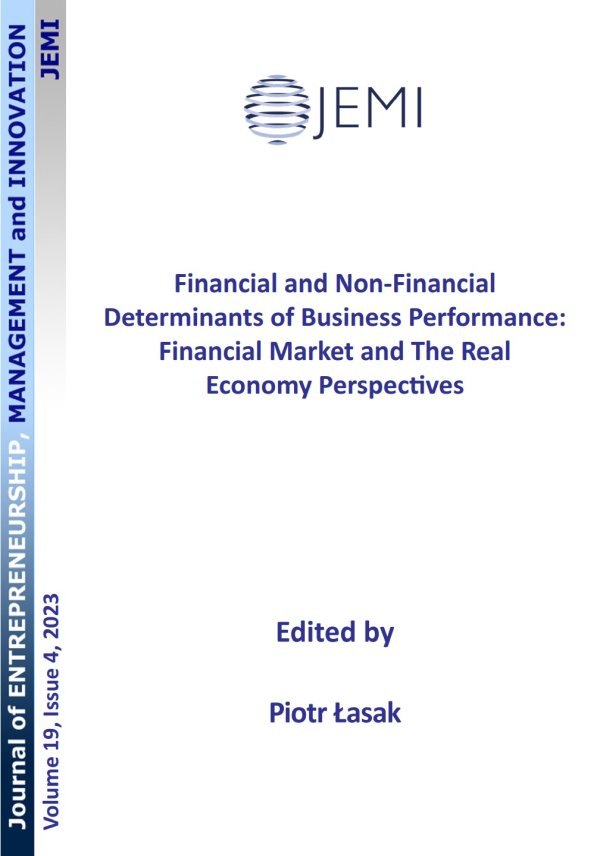Contemporary determinants of business performance: From the Editor
Contemporary determinants of business performance: From the Editor
Author(s): Piotr ŁasakSubject(s): Social Sciences, Economy
Published by: Fundacja Upowszechniająca Wiedzę i Naukę "Cognitione"
Keywords: financial and non-financial determinants; business performance; financial market; real economy perspectives
Summary/Abstract: Running a business today is becoming more complex than two or three decades ago. The world is becoming increasingly open and globalized, and the production processes of goods and provision of services are inscribed in global supply and value-added chains. Large corporations are doing well in such a market, but small and medium-sized enterprises often find it increasingly difficult to function. In addition, apart from the processes exerting pressure on enterprises operating in the real economy, as a result of financial globalization, the scope of financial entities (banks, investment funds, stock exchanges) was also increasing (Knox-Hayes & Wójcik, 2020). However, this is a phase of the past. Currently, not only crossing borders but, above all, far-reaching digitalization and the development of modern technologies set the main direction for the development of enterprises (Florek-Paszkowska et al., 2021). In order to cope with these changes, both individual companies and entire sectors, public administration, and society, as well as national economies, have to make so-called digital transformation (Gajewski et al., 2016). More profound changes are triggered by sustainability, ecology, and human-oriented goals, leading towards industry 5.0. All these processes exert pressure both on big companies as well as on small- and medium-size enterprises. The ongoing changes related to the digitalization process mean not only incorporating modern technologies into existing entities and structures but are much more critical. They are spiritus movens, leading to the transformation of entire sectors of the real economy and the financial markets (Marszk & Lechman, 2021). We can observe the emergence of ecologies and ecosystems (Gancarczyk & Rodil-Marzábal, 2022; Piątkowski & Urbaniec, 2023), mechanisms leading to the development of sharing economies (Szpringer, 2020), as well as the increasing rooting and linking of traditional financial services with services leading to meeting the needs of society. Financial services are embedded in products and become inseparable from these products, and the traditional division into sectors is gradually disappearing. This is possible thanks to the creation of platforms which connect many market participants (Sironi, 2021). In the context of the abovementioned far-reaching processes, many business entities operate according to traditional principles. The key for them are sales, profit and liquidity, which define the crucial financial performance. Among important aspects are also such issues as maintaining the security of business operations and obtaining the desired market indicators in stock companies. For enterprises from developing countries, the basic problem is access to finance, the market, and advanced technologies (Jalil et al., 2022; Łasak, 2022). In developed countries, enterprises also encounter many challenges related to the traditional corporate finance dimension despite a better situation. The current Issue published in the Journal of Entrepreneurship, Management and Innovation (Volume 19, Issue 4, 2023) is aimed at considering the nexus of topics related to the various aspects of the functioning of financial and non-financial enterprises. The main purpose of the articles is to focus on selected problems related to the financial aspects of business activity. The considered problems were presented in the context of contemporary processes taking place in the environment of enterprises. These include, on the one hand, far-reaching digitalization and the use of advanced technologies and, on the other hand, processes belonging to the Environment, Social, and Governance (ESG) area.
Journal: Journal of Entrepreneurship, Management and Innovation
- Issue Year: 19/2023
- Issue No: 4
- Page Range: 6-11
- Page Count: 6
- Language: English

